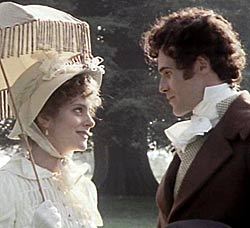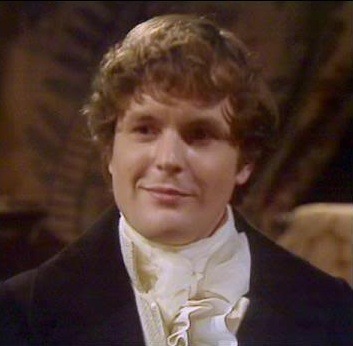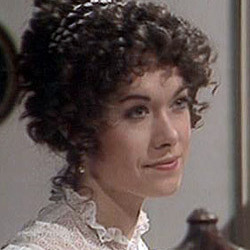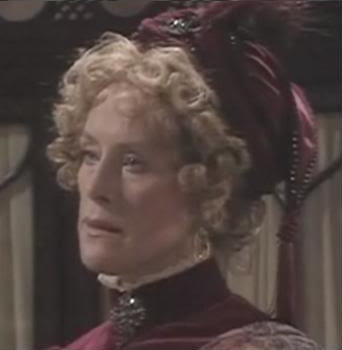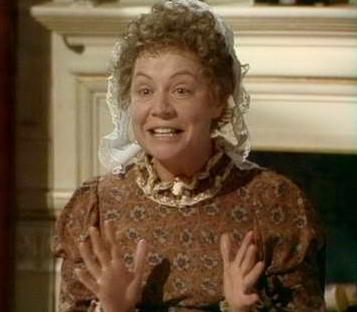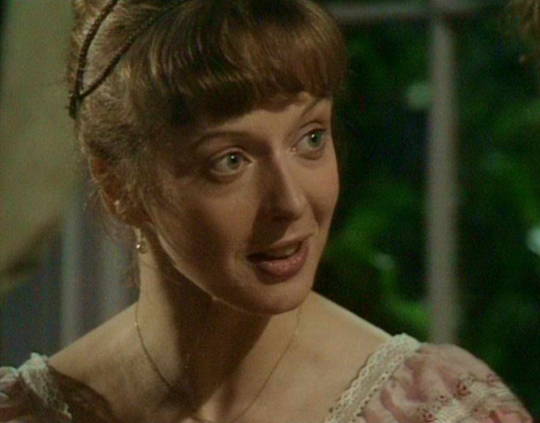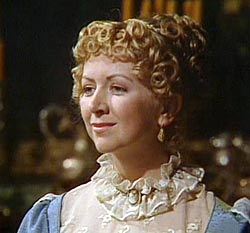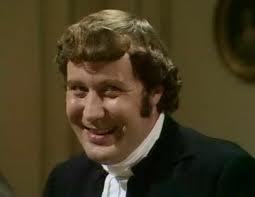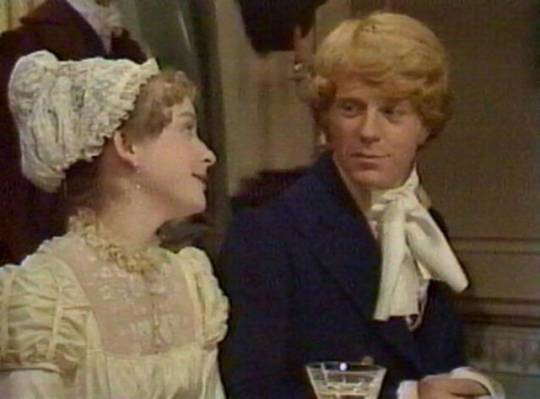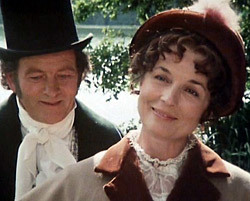Note
Can you shed some light on how and why Maria's infidelity end up on the paper? I have so many questions. Was that normal? Was it like, celebrity gossip today? Would the Rushworths wealth make them well known enough for their problems to make newsworthy gossip? Or was it like a crime report? Like how a robbery might be reported? Did Rushworth have anything to do with it? Because it sounds humilliating for him, but I'm thinking maybe he'd want evidence for the divorce?
I follow a Facebook group that shares snippets of the paper from the Regency and you can find everything! Like even things that today we would think of as very personal details. So yes, it was normal. For example:
Notice of a Marriage published in The Examiner August 27, 1809
On Monday at Bath, —----- Hartley, Esq., just come of age, and into possession of 6 to 8,000l., per annum, landed property, to Miss Watts, the daughter of the Parish Clerk of St. Michael’s, whose celebrity as a cobbler stands unrivalled. The young man has settled 300l., per annum on his father-in-law, and 600l., per annum on his wife. The ceremony commenced at eight o’clock, the bridegroom had no sooner given his troth than he was taken with fainting fits, and it was not till half past eleven the service was renewed. Shortly after, his uncle arrived to forbid the marriage. On leaving the church they were greeted by the populace.
(This also answers the question of how everyone knew everyone's incomes)
From August 1, 1811 London Chronicle:

[About two years ago the wife of Mr. Badden, a corn-dealer, in the neighborhood of Kingston, was lost from her home, and supposed to have been drowned in the returning from Hampton Court, her bonnet having been found in the river; and her husband and relatives mourned her loss in the usual manner; but on going through Malling, in Kent, last week, to the surprise of Badden, his supposed lifeless rib* presented herself, mounted on the top of a baggage-waggon, with a chopping boy at her breast, in the character of a corporal's wife, with whom it turned out she had eloped from Kingston, and to whom she was afterwards betrothed. Badden had got married also, and it is not apprehended that the lawyers will have any trouble on the occasion. *rib is a Biblical reference, Eve was formed from Adam's rib]
Marriage notice from the 4 February 1810 Examiner

[At Monkwearmouth, Mr. R, taylor, to Miss D. of Southwick. No sooner was the ceremony over, than the fair one seemed to demur, and strange as it may appear, she has not yet deigned to place herself in that situation in which a man's rib ought to be - in plain English, she has not gone home.]
Here is a crime from the London Chronicle Jan. 7, 1809:
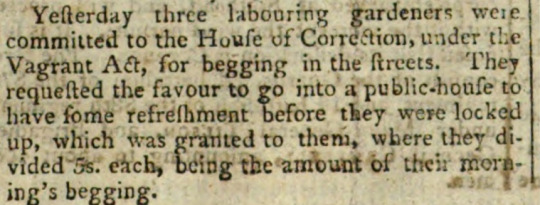
[Yesterday three labouring gardeners were committed to the House of Correction, under the Vagrant Act, for begging in the streets They requested the favour to go into a public-house to have some refreshment before they were locked up, which was granted to them, where they divided 5s. each, being the amount of their morning's begging.]
I think the main evidence against Maria was that she left the marital home, so newspaper reports probably wouldn't be necessary. I would imagine Rushworth would rather not have people talk about it, but it sounds like everything became very public.
Also, Rushworth was certainly rich enough to qualify for celebrity gossip-type coverage and Maria was the daughter of a baronet.
64 notes
·
View notes
Text
can someone make a decent mansfield park I am begging please I needs it
107 notes
·
View notes
Note
If you could fancast any actress to play Fanny, who do you think could do her justice, based on previous performances? How about Edward?
I am not the person to ask this, I hardly know the names of any actors, much less ones who are young (Fanny is 18 during the main novel). I personally think it would be the best if Fanny was a nobody actress and everyone else in the adaptation was famous, because it would represent Fanny's unimportance to everyone.
This is what my ideal Fanny Price looks like, based on hints in the novel:
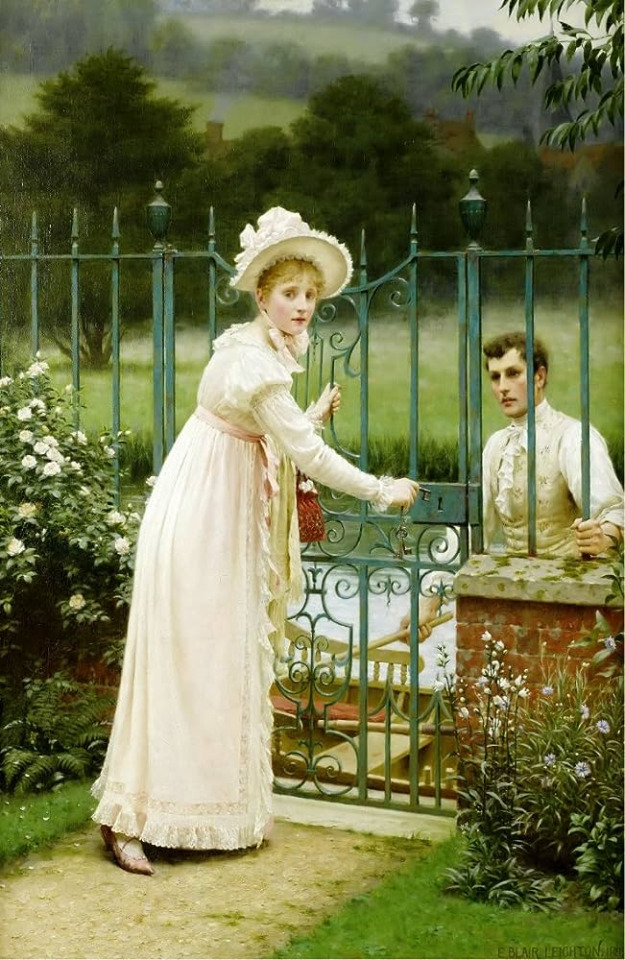
Edmund Blair Leighton, Where There’s a Will
But honestly, they just need to get her personality correct and I'd be happy.
37 notes
·
View notes
Text
Even in the midst of one of her more serious novels, Jane Austen can't help but take a little jab at her fellow novelists writing perfect female characters. You could almost think this quote was from Northanger Abbey!
for although there doubtless are such unconquerable young ladies of eighteen (or one should not read about them) as are never to be persuaded into love against their judgment by all that talent, manner, attention, and flattery can do, I have no inclination to believe Fanny one of them, or to think that with so much tenderness of disposition, and so much taste as belonged to her, she could have escaped heart-whole from the courtship (though the courtship only of a fortnight) of such a man as Crawford, in spite of there being some previous ill opinion of him to be overcome, had not her affection been engaged elsewhere. - Mansfield Park, Ch 24
77 notes
·
View notes
Text
All the People* who Wield Umbrellas in Jane Austen's novels and What it Means:
Dr. Grant, kindly asking Fanny to step into the house during a rainstorm
Fanny, having been sent into the village on some errand by her aunt Norris, was overtaken by a heavy shower close to the Parsonage; and being descried from one of the windows endeavouring to find shelter under the branches and lingering leaves of an oak just beyond their premises, was forced, though not without some modest reluctance on her part, to come in. A civil servant she had withstood; but when Dr. Grant himself went out with an umbrella, there was nothing to be done but to be very much ashamed, and to get into the house as fast as possible, Mansfield Park
Mr. Weston, kindly (perhaps with motive), getting an umbrella for Miss Taylor and Emma:
Robert Martin, most likely was holding an umbrella for his sisters, then kindly warns Harriet that a path is washed out:
“Ever since the day—about four years ago—that Miss Taylor and I met with him in Broadway Lane, when, because it began to drizzle, he darted away with so much gallantry, and borrowed two umbrellas for us from Farmer Mitchell’s, I made up my mind on the subject. I planned the match from that hour; and when such success has blessed me in this instance, dear papa, you cannot think that I shall leave off match-making.” Emma
Frank Churchill, trying to protect his secret fiancé from the rain:
“And so, there she had set, without an idea of any thing in the world, full ten minutes, perhaps—when, all of a sudden, who should come in—to be sure it was so very odd!—but they always dealt at Ford’s—who should come in, but Elizabeth Martin and her brother!—Dear Miss Woodhouse! only think. I thought I should have fainted. I did not know what to do. I was sitting near the door—Elizabeth saw me directly; but he did not; he was busy with the umbrella. I am sure she saw me, but she looked away directly, and took no notice; and they both went to quite the farther end of the shop; and I kept sitting near the door! Emma
Admiral Croft, making sure Anne can grab an umbrella:
In a few minutes the carriage returned.—Somebody talked of rain.—“I will see that there are umbrellas, sir,” said Frank to his father: “Miss Bates must not be forgotten:” and away he went. Emma
And lastly, Captain Wentworth, offering an umbrella to Anne (Mr. Elliot does not have one, we shall note):
“Well, whenever it suits you. You can slip in from the shrubbery at any time; and there you will find we keep our umbrellas hanging up by that door. A good place is not it? But,” (checking himself), “you will not think it a good place, for yours were always kept in the butler’s room. Ay, so it always is, I believe. One man’s ways may be as good as another’s, but we all like our own best. And so you must judge for yourself, whether it would be better for you to go about the house or not.” Persuasion
Umbrellas in Jane Austen are symbols of love and kindness. Always wielded by men. They provide shelter. A good man carries an umbrella, but not for himself.
After a moment’s pause he said: “Though I came only yesterday, I have equipped myself properly for Bath already, you see,” (pointing to a new umbrella); “I wish you would make use of it, if you are determined to walk; though I think it would be more prudent to let me get you a chair.” Persuasion
*Northanger Abbey's counting of umbrellas to see if it is raining does not count, as the people are unknown
260 notes
·
View notes
Text

Mary Bennet and Fanny Price could not be more opposite.
Mary is a show-off, know-it-all who pushes herself to the front of the line. Fanny is a humble, shy, wise individual who would rather sit back and listen. Mary's thread-bare morality is parroted, self-serving, and misplaced, Fanny's deep analysis of the people around her produces true judgments that she is often too frightened and too dismissed to share.
Unlike Mary, Fanny feels deep compassion for people who mess up. She doesn't try to turn Maria into some weird object lesson like Mary does for Lydia. Fanny loves despite seeing faults. Fanny is helpful at her own expense while Mary shuts herself up for "study" while her family falls apart. When Fanny hears about the problems with the Bertram family she longs to be home to help.
Mary Bennet is nothing like Fanny Price and I will give my life on that hill until the end of time. If Fanny is like any Bennet sister, it's the one she shares modesty, compassion, and birth order with: Jane.
249 notes
·
View notes
Text
The conversation in the chapel at Sotherton is so revealing of the characters present:
Fanny Price is sad it has been shut up, she sees it wonderful to gather the family and staff for prayers.
Mary Crawford sees an obligation that no one will profit from. She also sees the hypocrisy of the owners ordering the servants to pray while excusing themselves from worship. She also doesn't seem very excited about clergy themselves.
Edmund Bertram is between them. He admits (internally) to seeing poor chapel participation at Oxford, but he wants to believe the chapel could be good. He also defends the clergy, while admitting that many only appear on Sunday in London. He defends the country morals of living among the flock.
Julia and Maria Bertram only think of marriage. Morality is not on their minds.
Henry Crawford is using the setting to flirt with Maria.
The only one really awed is Fanny Price.
41 notes
·
View notes
Text
Jane Austen really said, "Yeah, my heroine would have fallen for him, proven rake and all, if she hadn't already been in love with her cousin. Other authors might imagine there are love-deprived teenage girls who can resist that level of temptation, but Fanny Price ain't one of them."
148 notes
·
View notes
Text
I have some, shall we say… FEELINGS about all the unearned hate and vitriol people love to heap onto Fanny Price. I’m going to properly get into it when I have time to do it justice, but for now, let’s just say Mansfield Park is my problematic fave and Fanny is not the problem here and no I will not take any notes on that particular point.
152 notes
·
View notes
Note
Hi, I just read about the trip to Sotherton in Mansfield Park and I was wondering what the "ha-ha" is that they mentioned a few times
A ha-ha is a fence that doesn't mess with the view, behold (top is a ha-ha, bottom is a normal fence/wall):
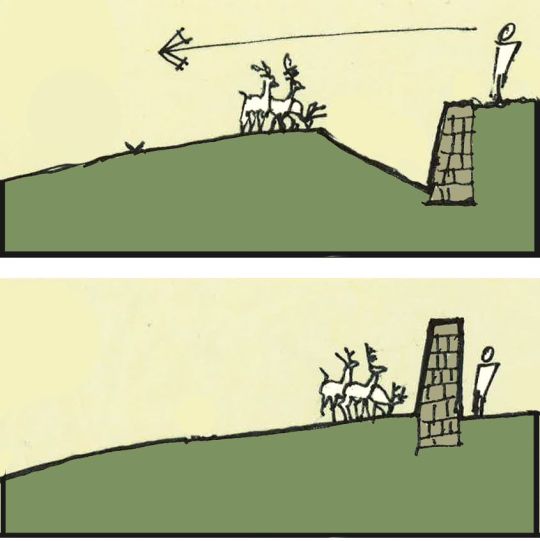
Here is a real one:
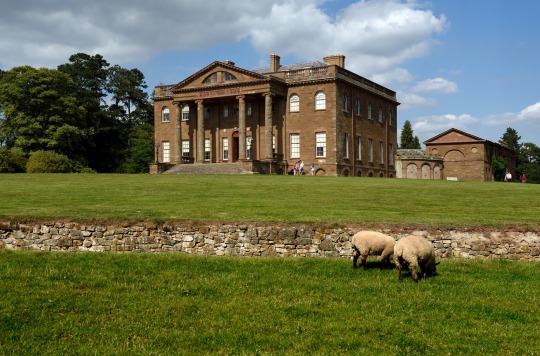
So basically, the animals can't get up, but the field looks completely smooth from the house.
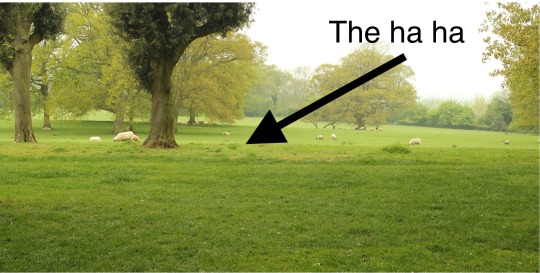
You can imagine it would be a bit of a danger since it's hard to see from the top, but Fanny is really just trying to keep Maria from insulting Mr. Rushworth by listing off potential dangers.
(definitely some symbolism about a danger that does not look like a danger, ie Henry Crawford)
All photos from a Google image search. I'm tired, top is from Wikipedia.
73 notes
·
View notes
Text
“My dear Fanny, you feel these things a great deal too much. I am most happy that you like the chain, and that it should be here in time for to-morrow; but your thanks are far beyond the occasion. Believe me, I have no pleasure in the world superior to that of contributing to yours. No, I can safely say, I have no pleasure so complete, so unalloyed. It is without a drawback.” Edmund Bertram, Mansfield Park Ch 27
This paragraph pierces my soul. Fanny does feel everything too much. Why can't she have a single unalloyed pleasure? Why can't she have a single uncomplicated happy moment in her whole freaking life?
85 notes
·
View notes
Text
Sometimes I feel like Mansfield Park is a direct response to Pride & Prejudice. Did Jane Austen get some fan mail where someone expressed that she'd "reformed a rake with the love of a good woman"? Was she tearing her hair out because that's NOT what Darcy/Elizabeth is AT ALL.
Did she pull out her pen and scream, "I'll show you a real rake and the heroine is going to flat out REFUSE to reform him! And then he's going to fuck her married cousin just in case I haven't made my point CLEARLY ENOUGH."
All for her own sister to regret that Henry Crawford didn't end up with Fanny...
321 notes
·
View notes
Photo
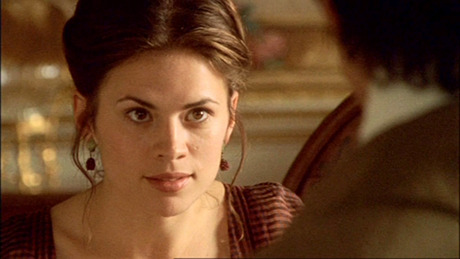

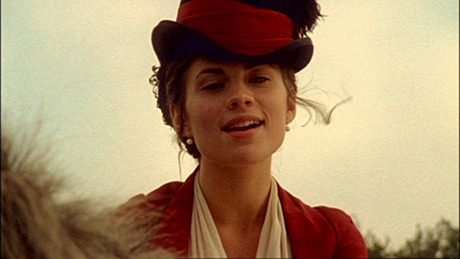
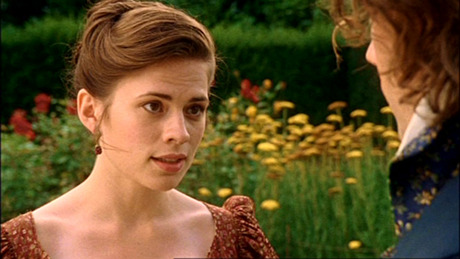
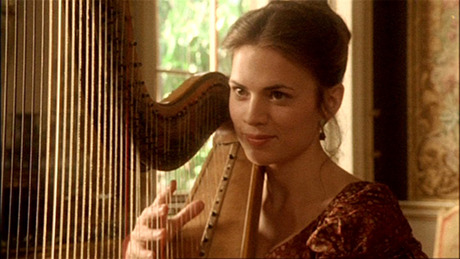
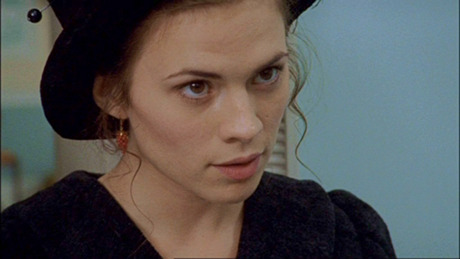
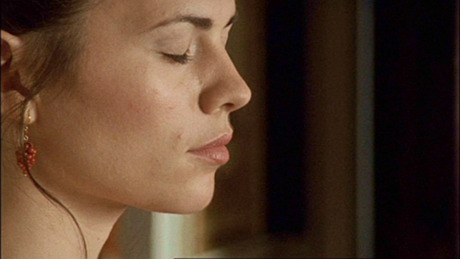
30 Days of Jane Austen || Favourite Female Character
Miss Crawford, in spite of some amiable sensations, and much personal kindness, had still been Miss Crawford; still shown a mind led astray and bewildered, and without any suspicion of being so; darkened, yet fancying itself light.
“No cold prudence for me. I am not born to sit still and do nothing. If I lose the game, it shall not be from not striving for it.”
12 notes
·
View notes
Text
woobies (again) and arrows
I recently listened to some guy reviewing ATLA, which was … okayish, but I found myself getting progressively more annoyed as he talked about Azula. He looooved Iroh’s “she’s crazy and needs to go down” and went on a tangent during “The Beach” about how her preoccupation with her mother couldn’t explain much if anything about her development because she was evil even as a small child, obviously she’s just an inherently awful crazy person for no reason.
Keep reading
118 notes
·
View notes
Photo
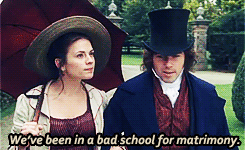
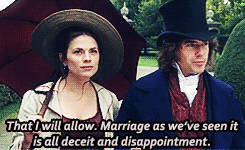
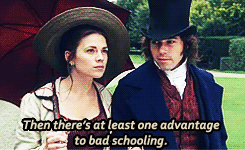
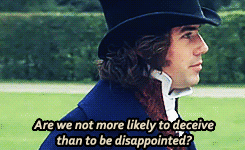

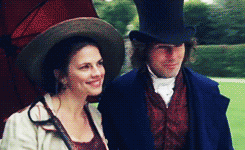
“She loves nobody but herself and her brother.” - Fanny Price
234 notes
·
View notes
Link
2K notes
·
View notes
